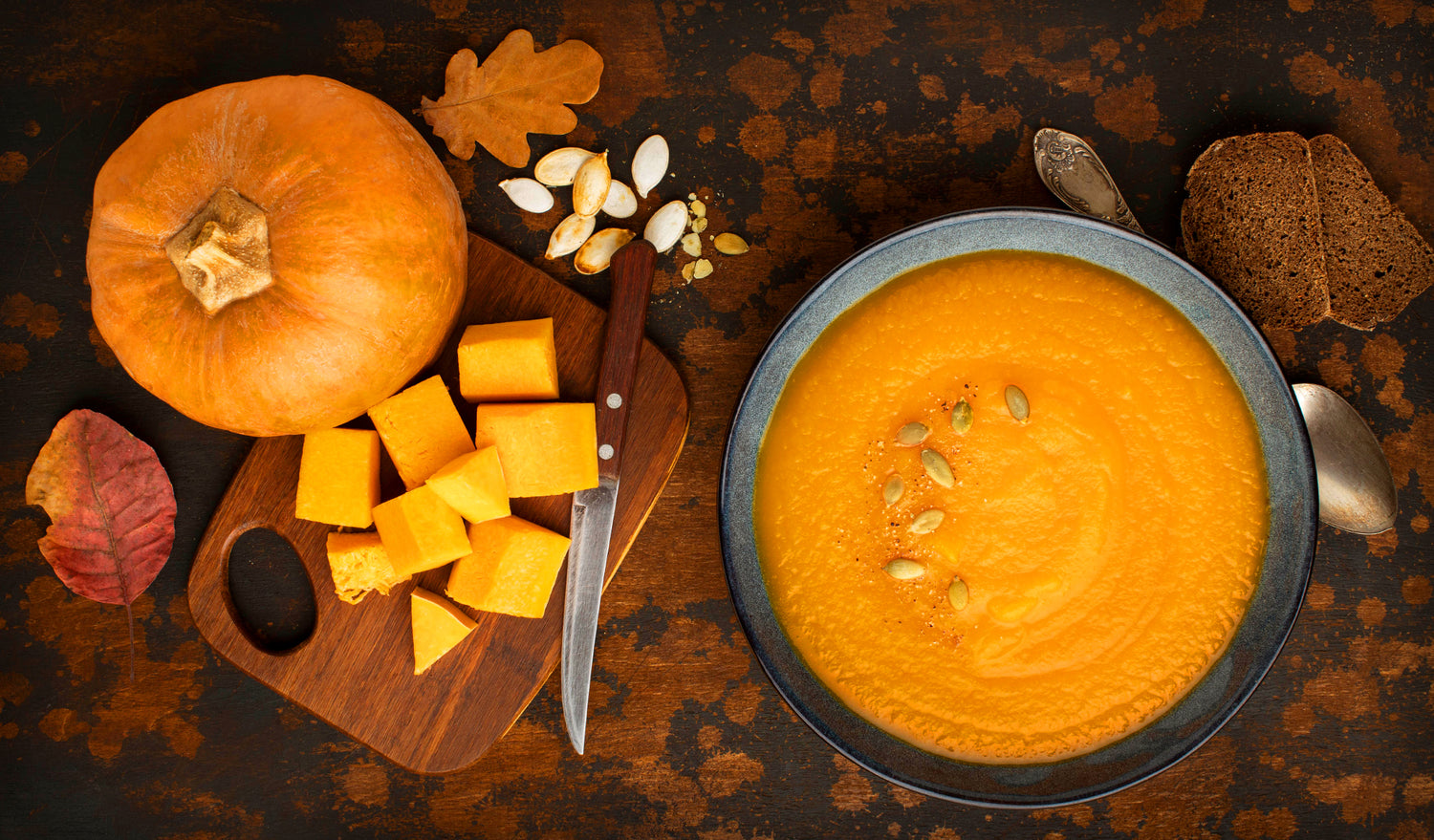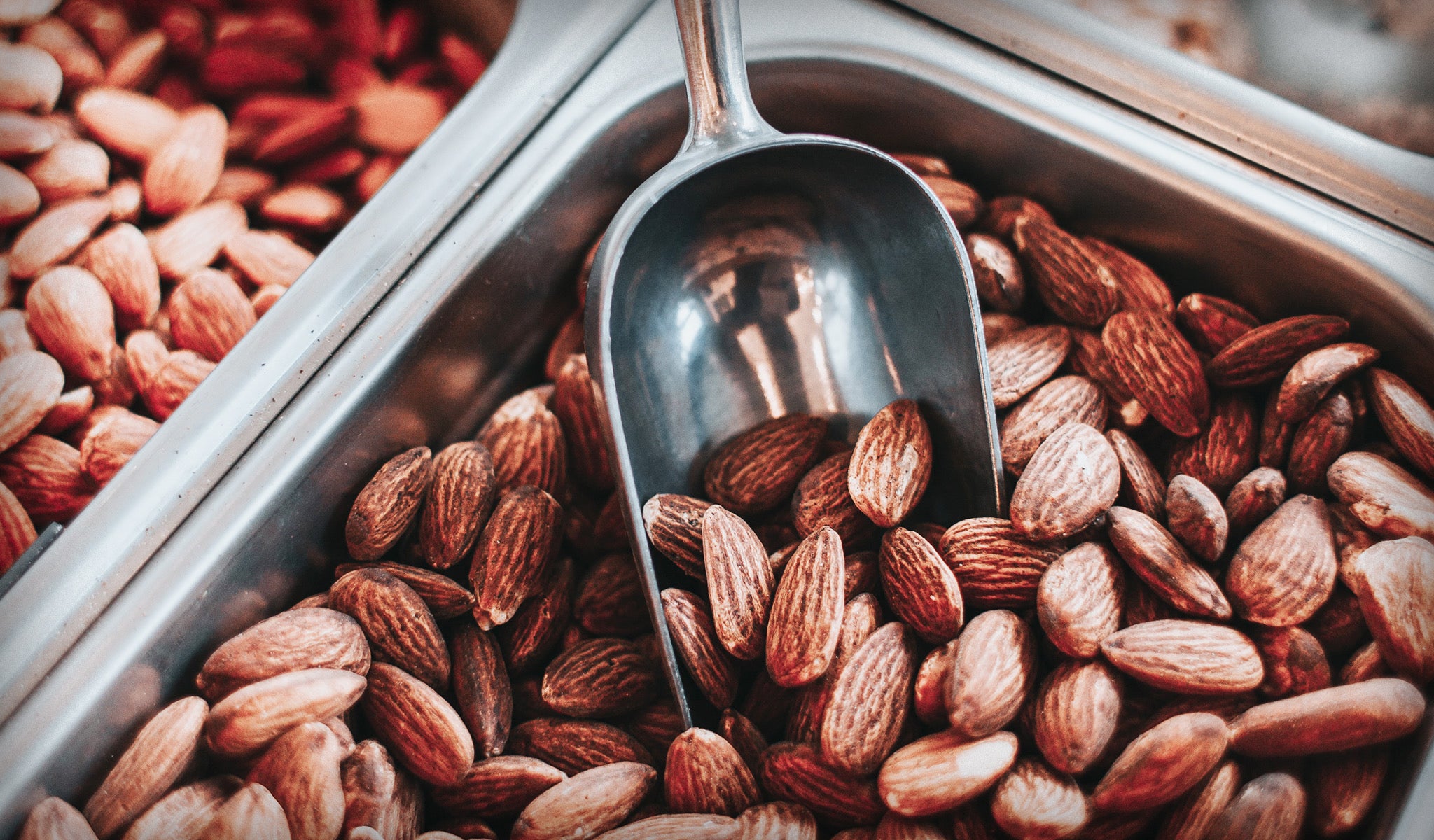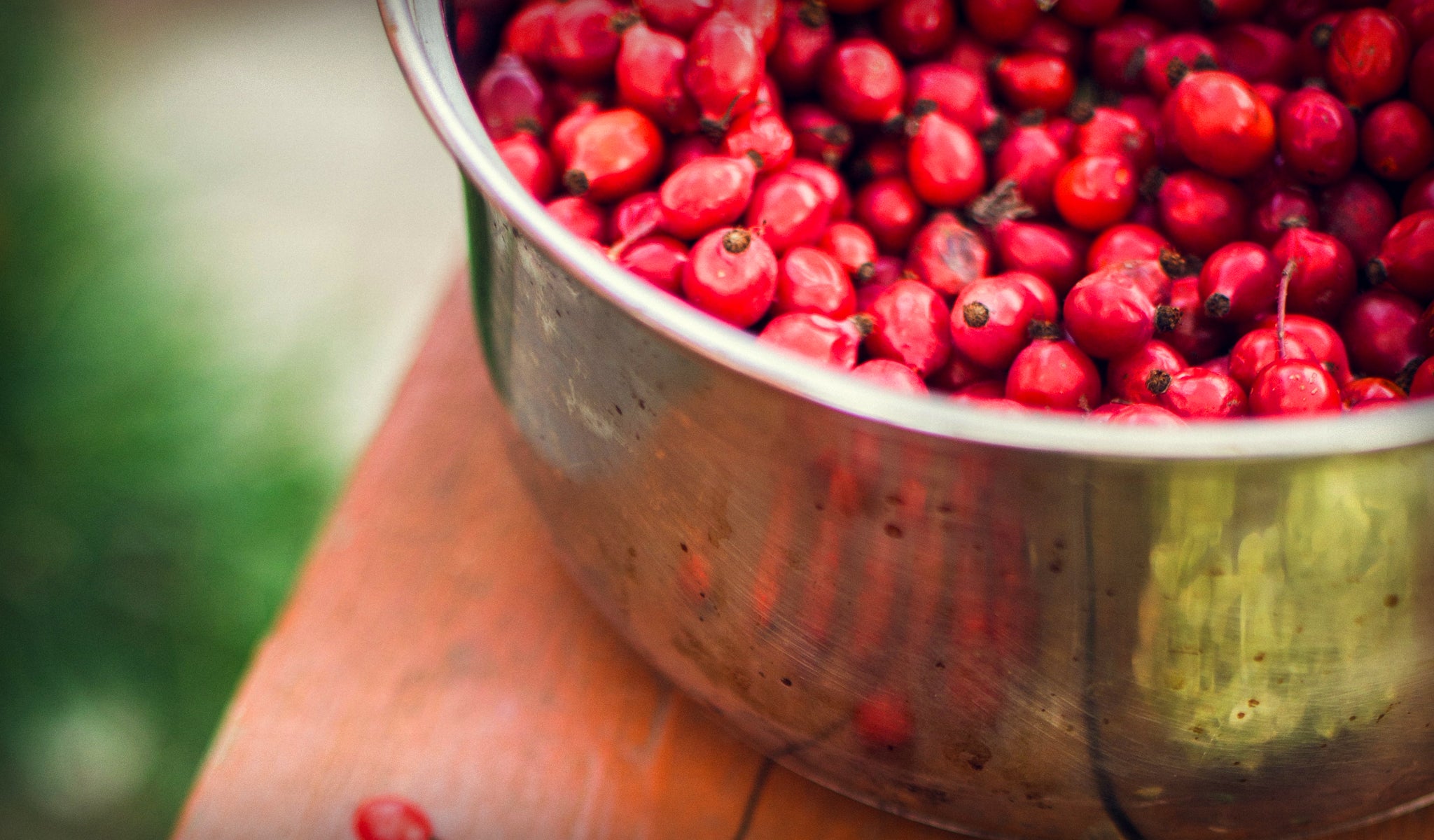Pumpkins belong to the winter squash group, along with acorn, butternut, and spaghetti squash. Their shells are hard and difficult to pierce, allowing them to have long storage periods of 1 to 6 months if chosen properly. Their flesh is mildly sweet in flavor and finely grained in texture, having seed containing hollow inner cavities. Small sugar pumpkins are the culinary variety, weighing only a few pounds, as opposed to the larger varieties used to carve jack-o-lanterns.
Pumpkins, like other richly colored vegetables, are an excellent source of carotenes - the richer the color, the richer the concentration. They are also a very good source of vitamins C, B1, B6, niacin, folic acid, pantothenic acid, potassium and dietary fiber. (that's a whole lot of goodness)
Like other carotene-rich vegetables they have been shown to exert a protective effect against many cancers, particularly lung cancer. In addition to cancer and heart disease, diets rich in carotenes also appear to offer protection against developing type 2 diabetes, with pumpkin consumption being the most protective.
It is important to select carefully before purchasing, you want winter squash that are firm, heavy for their size, and have dull, not glossy rinds. The rind should be hard, as a soft rind may indicate that the squash is watery and lacking in flavor. Avoid those with any signs of decay, which will manifest in spots that are water soaked or moldy. They should be stored away from exposure to light, and not subject to extreme heat or cold, the ideal temperature being 50-60 degrees F.
A way to easily prepare is halving, piercing several time for steam release, and bake at 350 for 45-60 mins... even quicker? peel skin, chop in chunks, and drop in the pressure cooker for 15 mins then top with butter (remember that those vitamins that are fat soluble will be better absorbed this way, and it always tastes better with butter). Experiment with spices to add even more nutrition, not to mention excitement. To get you started, here are some more appealing pairings for pumpkin as well as the other winter squash: Basil, Cardamom, Cinnamon, Cloves, Ginger, Marjoram, Nutmeg, Black Pepper, Rosemary, Sage, and Turmeric.
Pumpkins, like other richly colored vegetables, are an excellent source of carotenes - the richer the color, the richer the concentration. They are also a very good source of vitamins C, B1, B6, niacin, folic acid, pantothenic acid, potassium and dietary fiber. (that's a whole lot of goodness)
Like other carotene-rich vegetables they have been shown to exert a protective effect against many cancers, particularly lung cancer. In addition to cancer and heart disease, diets rich in carotenes also appear to offer protection against developing type 2 diabetes, with pumpkin consumption being the most protective.
It is important to select carefully before purchasing, you want winter squash that are firm, heavy for their size, and have dull, not glossy rinds. The rind should be hard, as a soft rind may indicate that the squash is watery and lacking in flavor. Avoid those with any signs of decay, which will manifest in spots that are water soaked or moldy. They should be stored away from exposure to light, and not subject to extreme heat or cold, the ideal temperature being 50-60 degrees F.
A way to easily prepare is halving, piercing several time for steam release, and bake at 350 for 45-60 mins... even quicker? peel skin, chop in chunks, and drop in the pressure cooker for 15 mins then top with butter (remember that those vitamins that are fat soluble will be better absorbed this way, and it always tastes better with butter). Experiment with spices to add even more nutrition, not to mention excitement. To get you started, here are some more appealing pairings for pumpkin as well as the other winter squash: Basil, Cardamom, Cinnamon, Cloves, Ginger, Marjoram, Nutmeg, Black Pepper, Rosemary, Sage, and Turmeric.
Enjoy!
Sara Pingle




